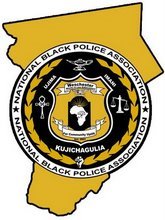A community forum yesterday generated calls for a "crisis intervention" in response to local police forces' lack of diversity and recent incidents of excessive force.
About 200 people attended the Detective Christopher A. Ridley Law Enforcement Community Relations Forum yesterday at Grace Baptist Church. The event was named after Ridley, a Mount Vernon police officer mistakenly shot to death in White Plains by four Westchester county police officers during Ridley's intervention in a Jan. 25 street fight.
Westchester County Executive Andrew Spano, District Attorney Janet DiFiore and other county and local elected and police officials from Mount Vernon, New Rochelle, White Plains and Yonkers sat on the panel.
They answered questions about what policies the county's largest police forces can adopt to increase police diversity and sensitivity to prevent incidents like the Ridley shooting or the body-slamming of Irma Marquez last year.
On Friday federal prosecutors charged Yonkers Police Officer Wayne Simoes with criminally violating Marquez's civil rights, after DiFiore's office prosecuted a case against Marquez without finding fault with Simoes' actions.
The Rev. Darin Moore of the United Black Clergy of Westchester began the forum by discussing the results of a national poll of black Americans released last week indicating that many of them feared or distrusted the police.
Moore co-moderated the forum with Grace Baptist's senior pastor, the Rev. W. Franklyn Richardson; the Rev. Al Sharpton of the National Action Network; and state Sen. Ruth Hassell-Thompson, D-Mount Vernon. Audience members wrote their questions on cards that were then handed to the moderators, who asked panelists questions.
Richardson said racial diversity in local police forces is critical to reducing community distrust and incidents like those involving Ridley and Marquez.
"I serve on the board of PepsiCo, and we can force the people who are hiring people to reflect the community we sell to," Richardson said. "If 24 percent of (Mount Vernon) police officers are black and 50 percent of the city is black, that is a crisis. There has to be a crisis intervention."
The panelists described their police departments' efforts to diversify, and then panelists turned their attention to the district attorney's role in providing evidence and advice to grand juries.
In her opening statements, DiFiore said that a district attorney cannot determine outcomes of grand jury decisions and that she would not criticize a grand jury's decision not to indict the four Westchester county police officers who shot Ridley.
Sharpton then questioned DiFiore's ability to investigate local police and her role in deciding what evidence is given to grand juries to review.
"In light of the arrest in Yonkers by federal prosecutors ... what can you say to the community to relieve them of the idea that a local district attorney cannot investigate a local police department?" asked Sharpton, who in recent weeks has come under federal scrutiny for his organization's income and tax declarations.
DiFiore said she would not hesitate to prosecute a police officer, and she described her response to her office's handling of the Marquez case.
"There were grave errors in judgment in that case," DiFiore said. "Lawyers have been disciplined and removed, and training has been introduced for all (prosecutors) from top to bottom."
Hassell-Thompson asked DiFiore to release a report of her disciplinary findings in the Marquez case, and Moore asked DiFiore to take the lead in investigating local police departments in matters of misconduct.
lohud.com
BLACKWATCH
The admission and acknowledgement of the District Attorney that they were grave mistakes in the handling of the Marquez case should give us pause. As a community we should take this opportunity to stop, reflect and ask ourselves: how many other innocent people have buckled under the pressure of the District Attorney’s Office? How many of us settled for being accused of minor infractions? How many times were people’s constitutional rights violated and overlooked?
Many disadvantaged families, especially those in the Black and Latino communities have been force to watch family members brought to court on trumped up charges like “disorderly conduct”, “obstruction of justice” and “resisting arrest” which are little more than smoke screens for police misconduct and criminality. Police Criminality is cancerous; and if left unchecked, it can erode the integrity of law enforcement and eat away at the trust of the community.
Politicians and law makers in Westchester should be called to the carpet for an ineffective and failed system of law enforcement and for the lack of accountability that is running rampant. In a true democracy, there is a system of checks and balances; there are forums for the people to be heard; and there is an opportunity for dialogue and change.
The National Black Police Association (NBPA) and National Association for the Advancement of Colored People (NAACP) have been monitoring the complaints of Police Criminality in the cities, towns and villages of Westchester. At the numerous rallies and community meetings we held over the past years, we discovered that many community residents do not know how to file a proper compliant when they felt their rights was violated by law enforcement officers. To this end, we have created an informational pamphlet “How do you Handle Police Brutality a Citizens Plan For Action”. This pamphlet is meant to provide citizens with information to help them determine if their rights have been violated by the police and what steps to take if they feel their rights have been violated.
The NBPA will continue to support and rally for legislation that will secure the appointment of a State wide Special Prosecutor to eliminate assumption of bias and political influence on investigations when local police municipalities are both “investigating” and “prosecuting” each other. Appointment of a Special Prosecutor will ensure transparency in the Justice system which is essential for building trust in the community we serve and for the ensuring that both the rights of victims and law enforcement officers are protected.
BlackWatch
Tuesday, July 1, 2008
Subscribe to:
Comments (Atom)


